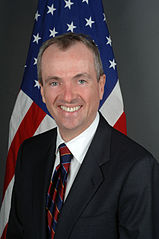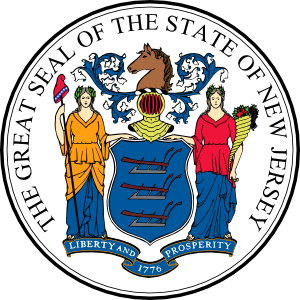April 10, 2023 •
New Jersey Gov. Murphy Signs Campaign Finance Bill
On April 3, Gov. Murphy signed Senate Bill 2866, the Elections Transparency Act. The act doubles the limit on contributions to candidates; triples contribution limits to state and political parties; and decreases the threshold for reporting contributions from $300 to […]
On April 3, Gov. Murphy signed Senate Bill 2866, the Elections Transparency Act.
The act doubles the limit on contributions to candidates; triples contribution limits to state and political parties; and decreases the threshold for reporting contributions from $300 to $200.
The act also creates additional independent expenditure reporting requirements and eliminates local pay-to-play rules, replacing them with the statewide pay-to-play law.
The Election Law Enforcement Commission’s operations are also affected.
The agency will now have only two years, instead of 10, to investigate violations of campaign finance law and Murphy is permitted to appoint an entirely new slate of commissioners to the Election Law Enforcement Commission without Senate approval in the next 90 days.
The new campaign finance limits and independent expenditure reporting requirements go into effect on June 27, while the provisions affecting state and local pay-to-play law took effect immediately.
March 27, 2020 •
New Jersey Commission Providing Grace Period For Business Entities Affected By State Emergency
The Election Law Enforcement Commission (ELEC) advises required companies to file Business Entity Disclosures (FORM BE) as soon as possible if they are currently operational or otherwise able to file by the deadline, March 30. ELEC will provide a grace […]
The Election Law Enforcement Commission (ELEC) advises required companies to file Business Entity Disclosures (FORM BE) as soon as possible if they are currently operational or otherwise able to file by the deadline, March 30.
ELEC will provide a grace period for any business entities during their period of closure if a business is affected by the current public health emergency.
To receive the grace period business entities may send a request by email to efiling@elec.nj.gov is required.
The request must indicate the business entity and the duration of the closure if known.
Senate Bill 1500 has made it Gov. Phil Murphy’s desk after being introduced in early 2018. The bill requires committees to report contributions in excess of $10,000 and expenditures in excess of $3,000 to the Election Law Enforcement Commission. Additionally, […]
 Senate Bill 1500 has made it Gov. Phil Murphy’s desk after being introduced in early 2018.
Senate Bill 1500 has made it Gov. Phil Murphy’s desk after being introduced in early 2018.
The bill requires committees to report contributions in excess of $10,000 and expenditures in excess of $3,000 to the Election Law Enforcement Commission.
Additionally, when the contributor is an individual giving more than $10,000, the committee must disclose the occupation of the individual and the name and mailing address of the individual’s employer.
If signed by the governor, the bill will impact the January 15, 2020, independent expenditure report.
October 23, 2015 •
New Jersey ELEC Proposes Changes to Lobbying Registration and Reporting Obligations
The New Jersey Election Law Enforcement Commission has approved the publication of a proposal amending lobbyist registration and reporting obligations. The proposal would require governmental affairs agents and represented entities to file all lobbying forms and reports electronically. A registration […]
 The New Jersey Election Law Enforcement Commission has approved the publication of a proposal amending lobbyist registration and reporting obligations. The proposal would require governmental affairs agents and represented entities to file all lobbying forms and reports electronically. A registration number and PIN supplied by the Commission would act as an electronic signature and acknowledgement for forms and reports submitted electronically.
The New Jersey Election Law Enforcement Commission has approved the publication of a proposal amending lobbyist registration and reporting obligations. The proposal would require governmental affairs agents and represented entities to file all lobbying forms and reports electronically. A registration number and PIN supplied by the Commission would act as an electronic signature and acknowledgement for forms and reports submitted electronically.
Furthermore, when a group of individuals, each registered as a governmental affairs agent, together represents more than one entity, the group will be able to file a notice of representation for a represented entity on behalf of the group. Notice of termination filed by such a group would need to indicate whether termination applies the entire group or to a specific governmental affairs agent.
Additionally, the proposal would require any changes to the notice of representation to be made by electronically filing an amendment. Lastly, the proposal would also require an individual registering as a governmental affairs agent for the first time to personally appear in Commission offices to submit the annual fee and required photographs.
The proposed amendments were published in the New Jersey Register on October 19, 2015, and will be the subject of a public hearing on December 15. If approved following the public hearing, the amendments are expected to go into effect in early February.
March 6, 2015 •
New Jersey Proposes Increase in Lobbyist Registration Fee
The Election Law Enforcement Commission has published a proposed lobbyist registration fee increase in the New Jersey Register. The proposed increase, which would change the registration fee from $425 to $575, is now subject to a 60-day comment period, followed […]
 The Election Law Enforcement Commission has published a proposed lobbyist registration fee increase in the New Jersey Register.
The Election Law Enforcement Commission has published a proposed lobbyist registration fee increase in the New Jersey Register.
The proposed increase, which would change the registration fee from $425 to $575, is now subject to a 60-day comment period, followed by a public hearing scheduled for May 19, 2015.
The registration fee has not changed since 2004.
April 20, 2013 •
NJ ELEC Makes Recommendations in Annual Report
2012 Annual Report
 In the 2012 Annual report issued by the New Jersey Election Law Enforcement Commission (ELEC) on April 15, the Commission listed several recommendations and ideas to strengthen the state’s campaign finance and lobbying laws.
In the 2012 Annual report issued by the New Jersey Election Law Enforcement Commission (ELEC) on April 15, the Commission listed several recommendations and ideas to strengthen the state’s campaign finance and lobbying laws.
ELEC recommends requiring disclosure from super PACs and non-profit groups organized under Section 527 and Section 501(c) of the IRS code, requiring disclosure of lobbying activity by local vendors who are required to report pay-to-play contributions, and expanding the 48-hour notice requirement for continuing PAC expenditures to require the filing of notices for expenditures made in May municipal, runoff, school, and special elections.
Among its other recommendations, ELEC calls for the state to expand the regulation of “wheeling” to include contributions by county political party committees to other county political party committees during the entire year.
In the report, the Commission also lists general ideas to strengthen the laws, including requiring grassroots lobbying materials to list the name and address of the committee paying for the material, increasing penalties for public financing violations, and banning the use of partnership funds for the purpose of making contributions.
The annual report can be found here.
April 9, 2012 •
ELEC Says PAC Contributions from Contractors Increasing
Calls for Reform
 Jeff Brindle, Executive Director of the New Jersey Election Law Enforcement Commission (ELEC), has renewed efforts calling for campaign finance reform, specifically concerning political contributions from contractors.
Jeff Brindle, Executive Director of the New Jersey Election Law Enforcement Commission (ELEC), has renewed efforts calling for campaign finance reform, specifically concerning political contributions from contractors.
In a press release detailing public contractors’ political contributions for 2011, ELEC’s analysis concludes that while contractors are making fewer contributions directly to candidates, they are making substantially more contributions to PACs.
Director Brindle states, “In some cases, contractors may be evading the intent of pay-to-play restrictions and contribution limits by giving indirectly through these PACs. That is why the Commission has recommended making it harder for one candidate or group to establish multiple, affiliated PACs.”
Director Brindle also reiterates the Commission’s recommendation to adopt a single statewide pay-to-play law. Previous LobbyComply blog posts discusses the earlier recommendations can be found here and here.
January 18, 2012 •
No Political Contributions on New Jersey Public Properties
ELEC Authority
 A New Jersey law prohibiting candidates for elective public office from accepting political contributions on public property has been expanded.
A New Jersey law prohibiting candidates for elective public office from accepting political contributions on public property has been expanded.
Senate Bill 3166, which has been signed into law and is effective immediately, amends state law to prevent the solicitation or contribution of political donations to candidates and officeholders on various public properties.
The prohibited properties include any property owned by any county, municipality, board of education of a school district, fire district, authority, or other state or local entity, district or instrumentality.
The new law also grants jurisdiction to the Election Law Enforcement Commission to enforce this rule.
State and Federal Communications, Inc. provides research and consulting services for government relations professionals on lobbying laws, procurement lobbying laws, political contribution laws in the United States and Canada. Learn more by visiting stateandfed.com.


